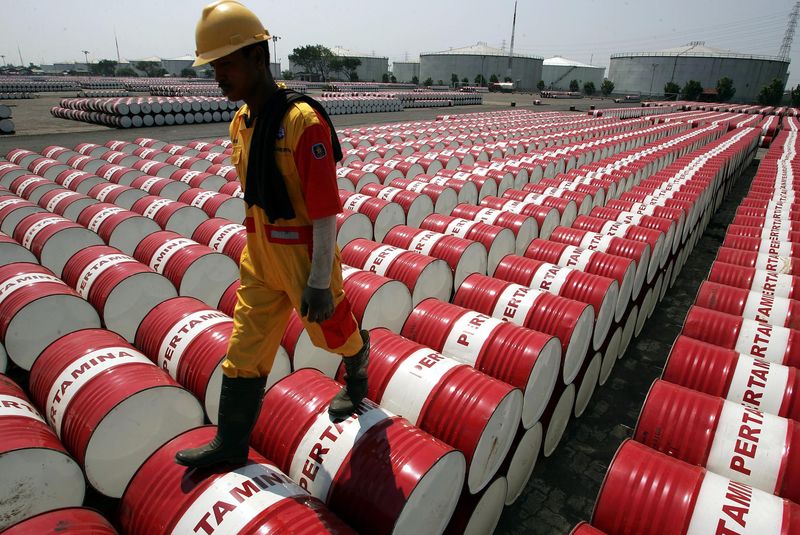Investing.com - West Texas Intermediate oil futures tumbled to the lowest level in more than three months on Wednesday, amid speculation weekly supply data due later in the session will show U.S. crude inventories rose unexpectedly last week.
On the New York Mercantile Exchange, crude oil for September delivery hit a session low of $50.04 a barrel, a level not seen since April 6, before trading at $50.12 during European morning hours, down 74 cents, or 1.45%.
Wednesday's government report was expected to show that U.S. crude oil stockpiles fell by 2.3 million barrels last week, while gasoline stockpiles were forecast to rise by 1.0 million barrels.
After markets closed Tuesday, the American Petroleum Institute, an industry group, said that U.S. crude inventories rose by 2.3 million barrels in the week ended July 17, disappointing expectations for a drop of 1.9 million.
New York-traded oil futures have been under heavy pressure in recent weeks as worries over high domestic U.S. oil production weighed.
According to industry research group Baker Hughes (NYSE:BHI), the number of rigs drilling for oil in the U.S. declined by seven last week to 638, snapping two weeks of gains.
However, U.S. oil production has held around 9.6 million barrels a day, the highest level since the early 1970s.
Elsewhere, on the ICE Futures Exchange in London, Brent oil for September delivery slumped 58 cents, or 1.02%, to trade at $56.46 a barrel.
London-traded Brent prices have been weighed by concerns over a resumption of Iranian oil exports, which could add to a global supply glut.
Iran and six world powers reached a long-awaited nuclear deal last week that would end sanctions on Tehran in exchange for curbs on the country's disputed nuclear program.
Iran reportedly hoards 30 million barrels of oil in its reserves ready for export. However, analysts largely estimate that Iranian crude exports could take several months to ramp up significantly.
Global oil production is outpacing demand following a boom in U.S. shale oil production and after a decision by the Organization of Petroleum Exporting Countries last year not to cut production.
The spread between the Brent and the WTI crude contracts stood at $6.34 a barrel, compared to $6.18 by close of trade on Tuesday.
